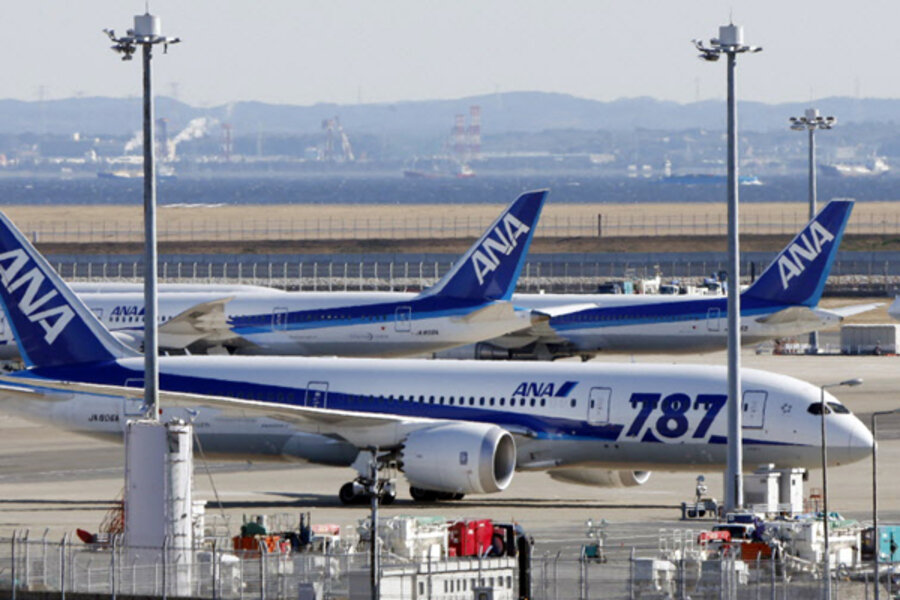Boeing proposes Dreamliner battery fix to Japanese regulators
| TOKYO
Boeing CEO Ray Conner met with Japan's transport minister and other officials in Tokyo on Thursday to explain his company's proposal for resolving problems with the 787 Dreamliner's lithium-ion batteries that have kept the aircraft grounded for over a month.
Conner met with Akihiro Ota, who heads the Ministry of Land, Infrastructure, Transport and Tourism, and with the director general of the Civil Aviation Bureau, to explain the proposed solution to the problem of the batteries overheating.
"I just want to reiterate that the 787 is still the game-changing aircraft it is meant to be," Conner told reporters between meetings in Tokyo. He would not give details of Boeing's plan, but said it had come up with a solution "that addresses all probable causes of the incidents in the aircraft."
"It is not an interim solution. This is a permanent solution," Conner said. "We are very hopeful that we will get the aircraft back in the air very soon."
Conner said Boeing was not at odds with the GS Yuasa, the Japanese maker of the batteries, over the fix.
Connor met earlier with All Nippon Airways, Boeing's launch customer with 17 of the 787s, said ANA spokeswoman Megumi Tezuka. She said the contents of the discussion were confidential.
A staffer at Japan Airlines' headquarters in Tokyo said he could not confirm if Conner had already met with JAL executives. JAL has seven of the aircraft.
Dreamliners were grounded worldwide after an overheated battery aboard an ANA 787 domestic flight forced an emergency landing in Japan on Jan. 16. Investigators are still probing the cause of that event, and of a Jan. 7 fire that erupted in an auxiliary power unit battery of a JAL 787 about a half-hour after the plane landed at Boston's Logan International Airport.
Boeing's plan, presented to U.S. regulators last week, calls for revamping the batteries to prevent potential short-circuiting from spreading from any one battery cell to others.
Officials in the U.S. said Boeing would fix the problem with the batteries overheating by having more robust ceramic insulation around each of the battery's eight cells so as to prevent any thermal runaway, a chemical reaction that leads to progressively hotter temperatures that was found in damaged batteries in JAL and ANA incidents.
"This solution takes into account any possible event that might occur," Conner said. "We see nothing in the technology that would tell us it's not the appropriate thing to do," he said.
The U.S. Federal Aviation Administration is considering the plan.
There are a total of 50 of the planes in service worldwide, and Boeing had orders for 800 of the airliners at the time they were grounded.
ANA has extended the cancellations of its 787 flights to May 31, with the total number of flights affected at nearly 3,600, involving some 167,820 passengers. JAL has cancelled its 787 flights through Mar. 30.







